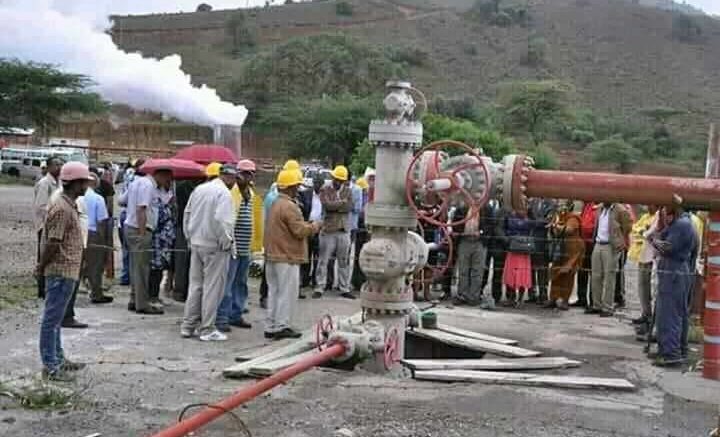Ethiopia’s nascent energy industry is gathering pace, with a unit of China Poly Group Corp. starting test output of crude oil in a volatile border region and the government estimating initial annual income of $1.2 billion when gas exports begin from the area.
Oil and gas income will be a major boost to the landlocked Horn of Africa nation’s economy, bringing in much-needed foreign exchange as well as saving on imported fuels, Prime Minister Abiy Ahmed said late Wednesday in a televised address. The United Arab Emirates this month pledged $3 billion in aid and investments to Ethiopia.
Earnings from estimated natural gas reserves of 8 trillion cubic feet from the Ogaden Basin may be as much as $7 billion a year once it can produce at full capacity, Abiy was cited by the state-owned Ethiopian Herald as saying on Thursday. Beijing-based China Poly that day began crude testing in three areas of the Hilala and Calub localities of Ogaden, which borders war-torn Somalia.
Ethiopia’s economy — the fastest-growing on the continent — is state-planned and focused mostly on agriculture, export-led manufacturing and large-scale infrastructure projects. Since Abiy took office in April, the ruling party has announced plans to open up state monopolies including airlines and telecommunications to foreign investors, while oil- and gas development, planned for years, is gearing up.
Starting Pipeline
Ethiopia plans a natural gas pipeline from the Ogaden to a port complex on the Red Sea in neighboring Djibouti. Abiy said on Wednesday that construction will start in September and exports will begin in 2021.
Poly-GCL Petroleum Group, a partnership between China Poly and closely held Hong Kong-based Golden Concord Group Ltd., signed five production-sharing agreements with Ethiopia in 2013 to explore in the Ogaden.
After Abiy met Somali President Mohamed Abdullahi Mohamed in mid-June, they announced they’d develop four seaports in unspecified locations to serve the Red Sea and Indian Ocean as well as highways linking the two countries.
“We discussed how this oil goes to their direction and comes to our direction,” Abiy said in his Wednesday address. Abdisaid Ali, national security adviser to Somalia’s president, and Nafisa Santur, senior political adviser to the country’s prime minister, didn’t immediately respond to Bloomberg requests for comment on the ports.
Abiy also talked about increasing security cooperation with Somalia’s federal government, referring to forces that may try to halt the project in the disputed area.
In April 2007, an Ethiopian rebel group, the Ogaden National Liberation Front, attacked a site operated by China’s Zhongyuan Petroleum Exploration Bureau in the area, killing nine Chinese workers and 65 Ethiopians. The insurgents have been fighting for self-determination since 1984.
Discover more from Idil News
Subscribe to get the latest posts sent to your email.


